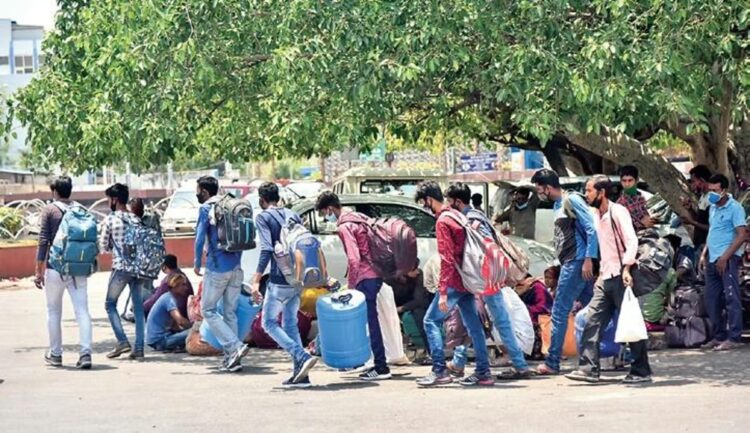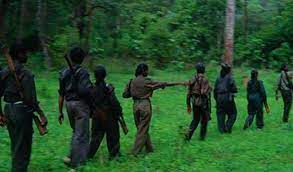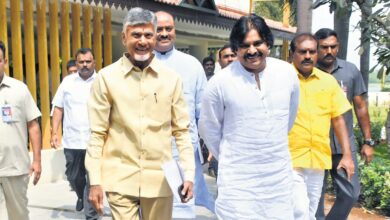In Odisha, an election presents a problem for seasonal migrant laborers
Voting is a challenge as well as a celebration of democracy for Odisha’s migrant laborers. Every election, voters from the southern regions may return home and cast a ballot, while those from western Odisha have difficulty taking part in the largest celebration of democracy.

Even though Odisha has a high rate of seasonal and traditional labor movement, it has significant difficulties securing migrant workers’ right to vote.
Before the polls, political party candidates make arrangements to return to their home country, but these efforts are only successful in southern Odisha. Only 20% of all migrants in western areas return to their home countries as workers.
8.51 lakh workers leave the state in search of employment, according to the Ministry of Statistics and Programme Implementation’s study “Migration in India,” which is based on the Periodic Labour Force Survey 2020–21. Bargarh, Balangir, Kalahandi, Nuapada, Ganjam, Gajapati, Kandhamal, Koraput, Nabarangpur, and Rayagada are the ten districts in the state that are prone to migration. These districts send laborers in search of employment to Telangana, Andhra Pradesh, Karnataka, Tamil Nadu, Gujarat, and Kerala.
All laborers must register with the labor department in the source, after which they will get “movement slips” allowing them to travel to the destination states. However, officials in the Labor department recognize that the number of migrant laborer registrations is tiny in comparison to the mobility that occurs at the local level.
The report, which was presented by the former labor minister Srikant Sahu in response to a question in the Assembly in March of last year, said that in 2022, 362 labor sardars were granted licenses to transport 26,700 registered laborers to neighboring states for employment. Up to 271 labor brokers were authorized to accept 31,785 workers in 2021, while 117 sardars were authorized to accept 11,177 migrant workers in 2020. This year, 82 approved sardars have transported 4,800 registered laborers to other states.
While residents from Ganjam and other southern Odisha districts traditionally migrate throughout the year, western Odisha experiences seasonal migration from September to June as people go to brick kilns in neighboring Telangana and Andhra Pradesh. Once a year, seasonal migrants from western districts of Odisha may return home, but traditional migrants from southern districts cannot until the ten-month brick-making period before the monsoon ends.
“Compared to western districts, the migration pattern in southern districts is completely different. Only male family members move in southern Odisha, while family migration occurs in western Odisha since brickmaking requires the participation of the whole unit, according to Berhampur-based migrant rights campaigner Loknath Mishra.
During election season, male members who are eligible to vote are made easier to roam about Ganjam and other southern districts by politicians and their allies. However, there is far less pressure on political leaders to bring back the workers from other states after this election. Since most of them have already returned due to the wedding season and the upcoming Danda Nacha, in which many young migrants participate, Mishra said. In anticipation of May 13 voting in Berhampur, Koraput, and Nabarangpur, he said, candidates’ supporters had already urged them to be present.
On the other hand, the majority of laborers in western Odisha are probably not going to vote. Elections are set on May 13 in Kalahandi and May 20 in Bargarh, Sundargarh, and Balangir. Given that these seasonal workers are unable to quit their jobs before June, politicians in western Odisha are not interested in having them return. Sushant Panigrahi, an activist, said that during previous elections, several political workers had contacted kiln owners to request that they let their workers to vote. However, the owners refused, allowing only male family members to vote and preventing their elderly parents, spouses, and children from voting.
Umi Daniel, director of migration and education at Aide et Action International, projects that seasonal movement occurs annually at a rate of around 3 lakh. Workers from western regions of Odisha who are migrants lack the funds to go to cast their votes. Even if they do, their company won’t allow them to take a longer vacation. He recommended that the government consider providing people with the opportunity to vote remotely so they may exercise their right to vote.







